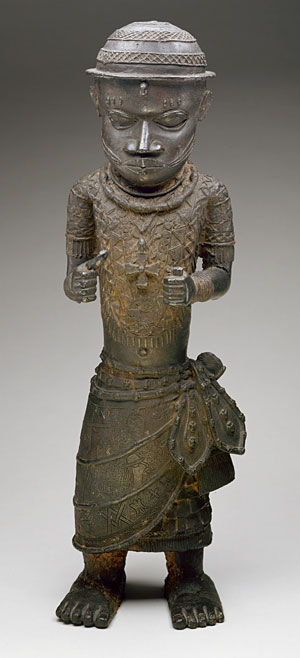
 |
|
|||||||||||||||||||||||||||||||||||||||||||||||||
 |
Slavery Facts Figures and Opinion
• An in depth study of the Atlantic slave trade estimated that the total number of slaves landed alive in America by 1870 was roughly 12 million. • It was also concluded that the death rate during the Crossing or what came to be called the Middle Passage was in the range of 10-20 percent. Giving us horrific figures ranging from 1 million to possibly more than 2.5 million that died on the slave ships. • One of the few successful rebellions on a slave ship occurred on the Amistad in 1840. • An English surgeon thought that two-thirds of those that died on the ships died from melancholy. People that were capture apparently just willed themselves to death. • Overall some 64 percent of the slaves were male and 36 percent were female. • During the trade that children were increasingly traded. Before the 1800's children under the age of fifteen constituted only 20 percent of the cargoes. But between 1811 and 1870 this figure rose sharply to 41 percent. |
The list of the horrors could go on indefinitely. It is strange how this dark episode in the history of the various peoples that make the African continent has not helped in producing a more stronger more united peoples. Atrocities of this magnitude have rarely taken place in recorded history, yet it seems that it has become a chapter that both the victims and the perpetrators are more than happy to close. Possibly the shame of both the Europeans and the Africans that were complicit in the trade of humans has been just too much to bear but the legacy of the past still lingers to this day. In turning our backs to the past we are stopping our progress towards the future. Till this day no apologies, no reparations, nothing has been given by the Europeans for their part in the tragedy. Africa on the other hand has suffered immeasurably for its past transgressions and continues to do so. Meanwhile, certain Western European states have grown rich and powerful through in part, the profits of the trade and the colonial production that made it possible. In the time since they have made vast advances in science, technology and social organization.
But the sad fact is that the old kingdoms of the Yoruba knew nothing of the new world order that was taking shape far beyond the forest regions. They knew nothing of the greater consequences of their actions and the impact it would have on their immediate and distant futures. All they did was fight small battles between each other in the hope of fulfilling great ambitions. Selling off their prizes of war to foreign traders. Traders that were in the throes of the Industrial Revolution. Unfortunately the Western Europeans were also going through their expansionist phase and they also had ambitions. But theirs were far greater, spanning continents and all the major oceans of the world. Their ambitions would destroy peoples, cultures and beliefs and have an impact that would reverberate for centuries to come. Nobody could have realized and foreseen the future… But all these events have passed. It is all now history. But why hasn't it been accorded its proper place in the past? Why is there silence where there should be apologies, why are there no public monuments of national contrition where there should be edifices marking the tragedy of centuries of slavery? Berlin has the Holocaust museum in recognition of Germany 's part in the treatment of the Jews in the Second World War; the British have apologized for their part in the Irish potato famine. Why is there no equivalent statement of regret in Europe for their part in slavery? Are we to believe that the European debt-forgiveness initiative is an act of Western altruism? No, we can't afford to believe; because written in the small print is the clause that in order for poor countries to benefit, governments must agree to ‘conditions' that allow foreign profit-making companies to take over public services. This was no gift, no gesture of good-will or regret by the Europeans. This was a ‘debt-for-equity swap' where the equity here been national sovereignty. Nothing so far indicated that the Europeans were leaning towards any form of an apology. Yet they wallowed in the profits that was made by slave trading, sugar, coffee, cotton, and tobacco. While Africa continues to suffer... The unfortunate fact is that even though many like to believe otherwise, African slavery in not ancient history; the world it made is around us in Western Europe and North America . And so in helping Africa move forward those that helped in pinning it back should make vocal their misdeed of the past and make a no strings attached effort to right those very terrible wrongs.
|